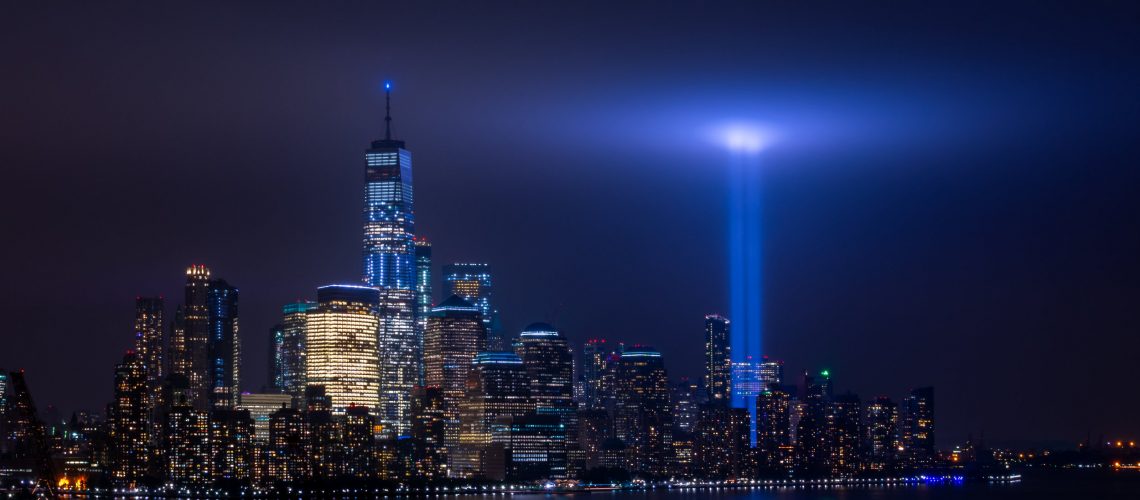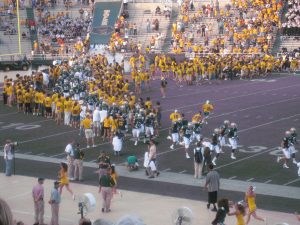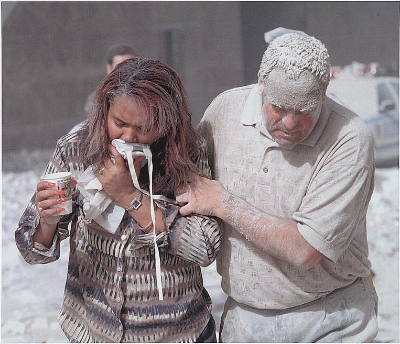
Life can be such a daily struggle, something that holds particularly true for a trial lawyer. By definition my job is adversarial. Arguments make most people uncomfortable, but they are my stock and trade. A lawsuit combines hundreds of disputes, large and petty, in a parade of motions, depositions and hearings. We fight to shape the case so that if it is tried, it is tried in way most advantageous to our client. Only a few cases actually reach the trial stage, but when they do all the animosities that caused the dispute in the first place, amplified by years of procedural bickering, come to play. The trial of a complex commercial case will take a couple of weeks to complete, during which the lawyer spends 20-hour days thinking of nothing else. It is us against them, the white hats versus the black hats. There will be a winner and a loser and all that matters is being the former.
Which is what I was doing 14 years ago today. A bitter corporate divorce was in trial in front of the great Mary Murphy, a smart judge who is very good at pointing out the flaws in everyone’s positions. Great when she mentions it to the other side, a little uncomfortable when she points out your own mismatched socks. Ultimately, however, she almost always gets its right, dispensing justice with an even, sure hand and a smile, when appropriate.
On the docket for the day was my cross examination of the other side’s star witness. It is the sort of day trial lawyers live for, a chance to dissemble another human being in front of an audience. Such is my profession. I left the house very early that morning to put a few finishing flourishes on my outline. When all was ready, I strolled the few blocks from our offices at Bank of America Plaza to the George Allen Courts Building under the cover of a brilliant blue fall sky. It was going to be my day.
On arrival, however, the cocoon I was living in started to open. Apparently, a plane had hit the World Trade Center. Like most, I assumed it was a small craft piloted by someone under qualified for the complicated air space around Manhattan. A tragedy to be sure, but a one-cycle news story at the most. After Judge Murphy noted the uncertainty generated by the event we plunged ahead with the trial. Forty-five minutes later, the court administrator came out from chambers and whispered in the Judge’s ear. Mary Murphy is about as unshakable as they come, but a look of dark concern crossed her face. She called a quick recess and invited us to her office.
It was in Judge Murphy’s office that I learned America is not immune from terrorists. When the South Tower fell, Judge Murphy sensibly postponed the trial for an indefinite time, not waiting on county supervisors to issue their edicts about county business. Intellectually I understood we were in the midst of an enormous calamity, but the idea of people flying commercial jets into skyscrapers and the Pentagon was so far outside a normal experience that I was having a hard time processing it. My client’s general counsel was frantically trying to find out if the company’s CEO, who was in downtown Manhattan, was safe (He was). I had partners spread out around the country at a time when air travel was not going to be available. My co-counsel was from Houston so my secretary heroically reserved the last rent car available in Dallas to allow him a return trip. Yet, through all the details I could not disengage from my trial mindset. As venial as it sounds today, my immediate thought was how the delay would impact the case.
Until I stepped outside the Courts building for the return trip to Bank of America Plaza. All of downtown Dallas was going home at the same time, wearing similar looks of shock and puzzlement. The human wave rolling out of the buildings was a stark reminder of how many people were battling horror on our most populous island. All of them had gone to work in a civilized, sophisticated world. In the blink of an eye, their focus changed from the details of daily life to survival in the midst of mayhem. Across the city, then the state, then the nation and finally the world, concern about loved ones, friends and acquaintances grew; in the absence of normal communications that concern could not be sated.
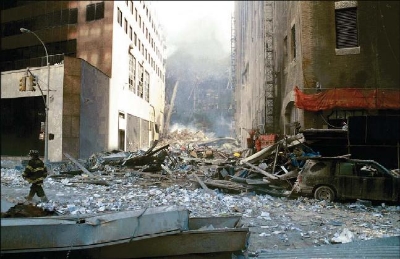
We watched the sky nervously for hours until it became eerily empty. There were anthrax scares and endless discussions of threat levels. The sheer audacity of the attack argued that a follow-up must be coming. Given the threat, the easy explanation for our unity in the weeks and months following is self-preservation; a “we are all in this together” ethos reminiscent of the Brits during the Battle of London. While the survivor gene is important, it is not fully explanatory. Fairly quickly, it became obvious that Al Qaeda was incapable of sustained attacks on American soil. Instead of a threat to our existence, we faced something different. If 9/11 meant anything, it meant that there is savagery in the world.
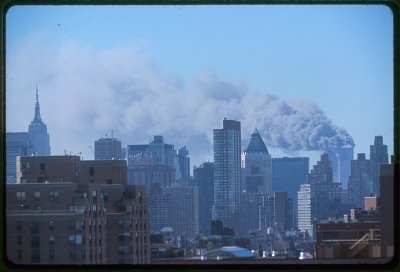
The world has seen evil too many times to count. That evil, however, has almost always been in the service of one man’s warped ambition, enabled by a cult of personality. If not, the evil has been transactional; with the promise of a reduction in violence if people or countries agree to act differently. Al Qaeda and now ISIS are different. Their ideology is nothing but mob rage, depravity for depravity’s sake. And that brand of trouble has proven more difficult to deal with. There is no head to lop off; no change in policy that can reduce the threat. The logic of this war escapes us because there is no logic.
Inevitably we turn inward, arguing we have been too brutal or not brutal enough. The truth is that neither the carrot nor the stick mean anything to today’s terrorists. The only algebra that makes sense here is to do whatever necessary to protect our lives so long as we do not fundamentally change on our lives in doing so. Fourteen years later, we have not solved the equation and some days it seems simpler to either withdraw or unleash.Fourteen years later we just seem tired of it all.
Still there were those thousands of people streaming from the buildings of downtown Dallas; there were my courtroom opponents and there was Judge Murphy, who understood what was going on long before I did. On that awful day, we came to understand that we were all one; that the phrase “one nation under God, indivisible …” holds real meaning. We celebrate anniversaries to remember the good, not the bad. So today, lets set aside our pettiness, forget the procedural bickerings that animate so much of our discussion and remember our greatness comes from a common desire to elevate the human condition. Savagery will occasionally have its day, but over the long road it is no match for a people bound together.
![Photo By Michael Rieger (This image is from the FEMA Photo Library.) [Public domain], via Wikimedia Commons](https://talesfromanemptynest.com/wp-content/uploads/2020/09/242_image-asset.jpg)

